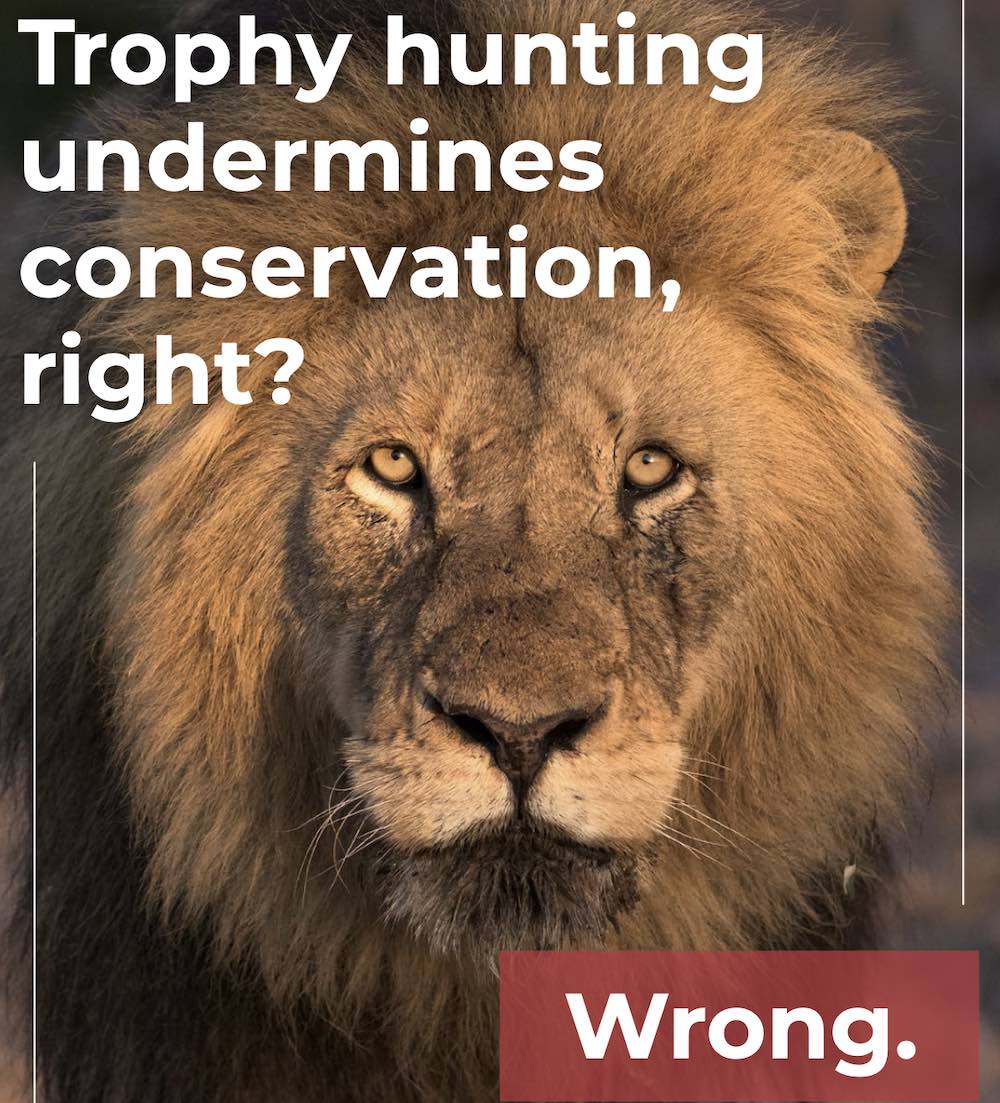Report on the Hunting Trophies (Import Prohibition) Bill debated in the UK House of Commons
[Click to download full report]
- Governments across the range states of Southern Africa, in addition to leading scientists including the UK’s Joint Nature Conservation Committee which advises ministers, have cautioned against this Bill because it removes revenues that mitigate key risks to biodiversity – namely habitat loss and poaching.
- Trophy hunting does not pose a major threat to any of the 73 animal species covered by CITES that have been imported as trophies into the UK in the past 22 years.
- Trophy hunting is not a key threat to ANY of the 6,000 species covered by this Bill , a list that includes 2,076 cnidarians (corals, sea anemones, jellyfish, sea- parasites, etc.), 1,468 species of birds, 877 reptiles, 198 amphibians, 95 molluscs, 69 bats, 58 moths, and 42 species of spiders and scorpions.
- Trophy hunting helps protect more land in Africa than national parks, providing habitat for countless animals, insects, birds and plants not subject to hunting.
- Typically, between 20 and 100 percent of local revenues from trophy hunting, such as concession fees, go direct to local communities. This revenue is complemented by the meat from hunted animals which goes into local food chains – be that white-tailed deer, antelope, elephant, buffalo, giraffe, hippo or gazelle – often providing a critical source of protein.
- An over-emphasis on endangered animal population declines at a global or continental level ignores the fact that some countries may have high densities of the same species. In some parts of Southern Africa, abundant elephant populations now pose a serious risk to property, water sources, crops and people. The management of animals then becomes inevitable to maintain an ecological balance between the needs of people and different animal species competing for the same finite resources.
- Photo-tourism and hunting can (and often do) co-exist as entirely complementary sources of revenue for landowners and communities. However, most hunting areas will never be suitable for photo-tourism as they are either too remote or lack the density of wildlife necessary to justify the infrastructure and investment to operate at scale (airlift access, roads, water, electricity, vehicles, accommodation).
- The Parliamentary debate surrounding the Hunting Trophies (Import Prohibition) Bill has been driven by extensive misinformation from animal rights activists, backed by celebrities who have no conservation expertise. In the second reading of the Henry Smith MP-sponsored Bill, over 70% of MPs’ statements in favour of the Bill were found to be false or misleading.
- The UK is guilty of gross hypocrisy and double standards in denouncing trophy hunting abroad but tolerating a substantial trophy hunting industry here at home. The UK hunts many thousands of hunting trophies every year (particularly red deer from Scotland) and hosts international hunters who pay thousands of pounds to come to the UK to shoot a variety of animals, from six different species of deer, to wild goats, foxes, partridge, duck, snipe, woodcock, pheasant, geese, hare and rabbit.
- As one of the most nature-depleted countries in the world, the UK has no authority to lecture other countries about conservation. This is especially true of southern Africa, which has more stringent regulations on hunting than the UK and boasts some of the most successful conservation outcomes in the world.
- UK officials have previously suggested that income lost through hunting trophy bans might be substituted by UK grants or aid donations. But this perpetuates an aid-dependency that has dogged many developing countries for decades. If countries have a sustainable wildlife resource, they should be entitled to make use of it without interference from wealthy nations who would impose the value judgments of people that know little of extreme poverty and deprivation.
- Those who raise ethical or fundamental moral objections to hunting are entitled to that view, but they should recognise that removing sustainable hunting will not end animal suffering: it is more likely to exacerbate it. Without a financial incentive to tolerate and manage wildlife, animals will be considered a pest or a threat and subject to indiscriminate snaring or poisoning, often impacting breeding females and young animals which are usually unaffected by hunting quotas.
- The Hunting Trophies (Import Prohibition) Bill will harm – not help – the conservation of endangered animal species.



